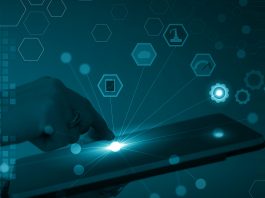Artificial intelligence (AI) and the rise of AI has been a topic of discussion for many decades. However, it is only in recent years that it has become a reality and in even more recent years still (especially since the advent of ChatGPT) that it has generated so much excitement.
Today AI and Machine Learning are everywhere – in all walks of life and across multiple industries.
The scientist and science writer, Arthur C Clarke, famously once said: “Any sufficiently advanced technology is indistinguishable from Magic!”
But where did it come from and how did we get here?
The origins of Artificial Intelligence
The idea of creating machines that could think and learn like humans has been around since the early days of computing. In the 1950s, computer scientist John McCarthy coined the term ‘Artificial Intelligence’ and began exploring the possibility of creating machines that could perform tasks traditionally done by humans, such as playing chess or recognising speech.
Over the next few decades, researchers developed various AI technologies, including expert systems, neural networks, and natural language processing. These technologies were used in a variety of applications, such as medical diagnoses, speech recognition, and image analysis.
However, progress was slow, and it was not until recently that AI began to really take off.
The rise of Machine Learning
One of the key drivers of the rise of Artificial Intelligence has been the development of Machine Learning. This is a subset of AI that involves training algorithms to learn from data. By feeding large amounts of data into Machine Learning algorithms, researchers can teach machines to recognise patterns and make predictions.
Machine Learning has been used in a wide range of applications, from image and speech recognition to fraud detection and recommendation systems. Companies like Google, Facebook, and Amazon have all invested heavily in machine learning, using it to improve their products and services.
Deep learning and neural networks
Another important development in the rise of AI has been the rise of deep learning. Deep learning is a type of machine learning that uses neural networks – algorithms that are inspired by the structure of the human brain. Deep learning models can recognise complex patterns in pictures, text, sounds, and other data to produce accurate insights and predictions, making them ideal for tasks like image and speech recognition.
Deep learning has been used in a variety of applications, from self-driving cars to medical diagnoses. In recent years, researchers have made significant progress in developing large-scale neural networks that can process vast amounts of data and make complex decisions.
The impact of the rise of AI on industry
The rise of AI is already transforming many industries, and its impact is likely to be even greater in the future. In healthcare, AI is being used to improve medical diagnosis and drug discovery. In finance, AI is being used for credit scoring, fraud detection and risk assessment. In manufacturing, AI is being used to optimise production processes and improve quality control.
AI is also changing the way we work. Automation technologies like robots and chatbots are already being used in a variety of industries, from manufacturing to customer service. As AI becomes more advanced, it is likely to lead to significant changes in the job market, with many jobs becoming automated.
These technologies will certainly create a fundamental shift in how we work, but few will agree on the future of these technologies or how they may change the world as we know it today. Some believe it will deliver Utopia, where everyone will have all the time and money they need, while others insist that technology can never be that powerful.
According to Sam Altman, Founder and CEO of Open AI, his company was “building technology that would solve some of the most pressing problems, increasing the standard of living, and also figuring out much better uses for human will and creativity.”
When asked if a machine could do everything a human brain could do and whether it would eventually drive the price of human labour to zero, Altman demurred that he could never imagine a world where the human brain is useless.
If this is true, wealth and money could mean something quite different in this new world. Applying Artificial Intelligence and machine learning to all facets of lives and the knowledge we seek to gain can be truly transformational.
It may change everything we think, we know and everything we currently do and how we value it. AI platforms and applications using AI will steadily increase their capabilities towards general intelligence and deliver far more efficient and informed operations, ideas, discoveries, and insights that have never been attainable in any domain before.
This could well be that Promethean moment in history, when certain new tools and ways of thinking are introduced, ushering in a huge departure from what existed earlier. It will not be a change to one thing or something, but a widespread change across lifestyles and cultures. It will change the way we work, collaborate, compete, learn and govern.
Promethean moments happen once in 600 years, like the invention of the printing press, the scientific revolution, the agricultural revolution, the industrial revolution, the nuclear revolution, and the current era of personal computing and the internet.
AI will bring about an age of acceleration, amplification, and democratisation. Never have we been exposed to accessing more information with cheap tools through a technological advancement super-cycle. This will surely help us accelerate our ability to digitise, process, learn, share, and act increasingly with the help of AI. This will be available to all humans and will pervade everything we live with, use and process every day, like our cars, phones, homes, and machines.
But the challenge with the rise of AI and the speed and rate of change it is bringing into our lives, is as powerful as the challenge we faced when we created nuclear energy – it could be used to light up a whole country or obliterate the whole planet. The good thing about nuclear energy is that it was created by governments, with clear systems and rules and policies of control.
The ethics of AI
As AI becomes more advanced, it raises important ethical questions about the role of technology in society. One of the key concerns is the potential for AI to be used for malicious purposes. For example, AI could be used to create fake news or deep fakes, making it difficult to distinguish between real and false information.
Another concern is the potential for AI to reinforce existing biases and inequalities. Machine learning algorithms are only as good as the data they are trained on, and if that data is biased, the algorithm will be biased too. This could lead to discrimination and inequality, particularly in areas like medical treatments, hiring and lending.
There are also concerns about the impact of AI on jobs. As AI becomes more advanced, it is likely to automate many jobs, particularly in industries like manufacturing and customer service. This could lead to significant job losses and exacerbate existing inequalities.
The need for regulation
With the rise of AI, there is also a growing concern about the potential risks associated with its use. To address these concerns, governments and organisations around the world are calling for the regulation of AI.
AI regulation refers to the legal and ethical guidelines and frameworks that govern the development, deployment, and use of AI systems. These regulations are intended to ensure that AI is developed and used in a way that benefits society, minimizes potential harms, and upholds ethical standards. The goal of AI regulation is not to stifle innovation or progress, but to provide a framework that promotes responsible and ethical AI development and use.
One of the primary concerns driving the call for AI regulation is the potential for AI to be biased or discriminatory. AI systems are only as unbiased as the data they are trained on, and if that data reflects the biases and prejudices of society, then the AI system will perpetuate those biases. This can lead to discriminatory outcomes in areas such as employment, housing, and healthcare. To address this, AI regulation must ensure that AI systems are developed and used in a way that is fair and non-discriminatory.
Another concern driving the call for AI regulation is the potential for AI to pose a threat to national security. As AI becomes more advanced, it could be used to develop autonomous weapons or to launch cyber attacks. To address this, AI regulation must ensure that AI systems are developed and used in a way that is safe and secure.
There are currently several initiatives underway to develop AI regulation frameworks. In 2019, the European Union (EU) released its “Ethics Guidelines for Trustworthy AI,” which outlines seven key requirements for AI systems to be considered trustworthy: human oversight, technical robustness and safety, privacy and data governance, transparency, diversity, non-discrimination, and societal and environmental well-being. The guidelines are intended to provide a framework for the development of AI systems that are transparent, accountable, and respect fundamental rights.
In the United States, the National Institute of Standards and Technology (NIST) has developed a framework for managing risk in AI systems. The framework provides a structured approach to assessing and managing the risks associated with the development and deployment of AI systems, including issues related to bias, fairness, and transparency.
Other countries, such as Canada and Japan, are also developing AI regulation frameworks. In Canada, the government has released a discussion paper on the development of a national AI strategy that includes provisions for the ethical use of AI. In Japan, the government has established a council to develop AI regulation guidelines.
In addition to government-led initiatives, there are also efforts underway by industry groups and civil society organisations to develop AI regulation frameworks. For example, the Partnership on AI, a consortium of technology companies and civil society organisations, has developed a set of ethical guidelines for AI development and use.
While there is a growing consensus that AI regulation is necessary, there is still much debate about the best approach to regulating the rise of AI. Some argue that AI should be regulated as a separate category of technology, while others argue that existing regulations can be adapted to address AI-specific concerns. There is also debate about the extent to which AI regulation should be mandatory or voluntary.
What is clear is that there is a growing recognition that AI regulation is necessary to ensure that AI is developed and used in a way that benefits society.
As the rise of AI continues to become more advanced and more integrated into our daily lives, the need for responsible and ethical AI development and use will only become more pressing. The development of effective AI regulation frameworks will be critical to achieving this goal.
The world is on the cusp of revolutionising many sectors through Artificial Intelligence. Still, the way AI systems are developed needs to be better understood due to the major implications these technologies will have on humanity as a whole.
AI may well become the single most influential human innovation in history.

Padma Ravichander
CEO
Tecnotree










A captivating exploration of the rise of AI and its potential as the most influential invention ever, inspiring me to delve deeper into this groundbreaking technology through an AI course.